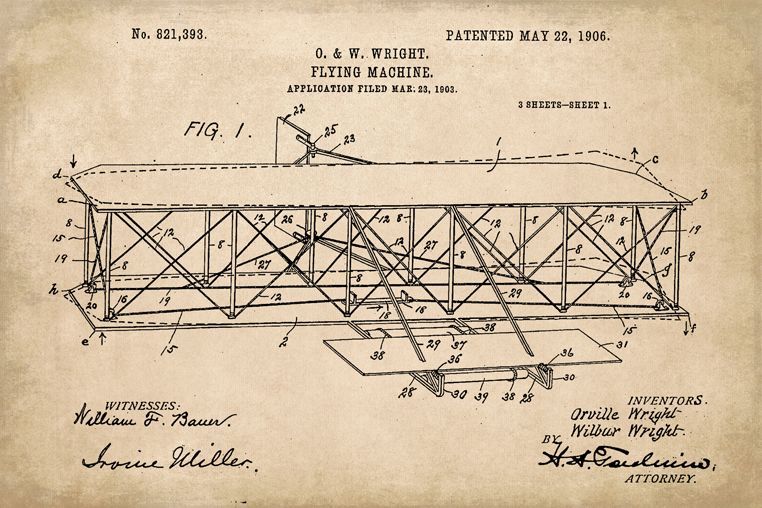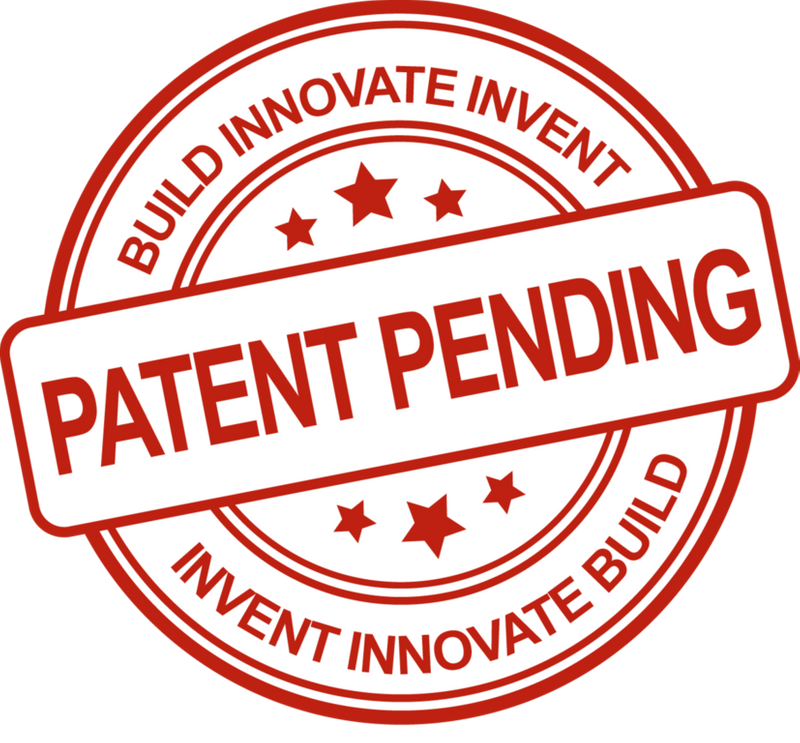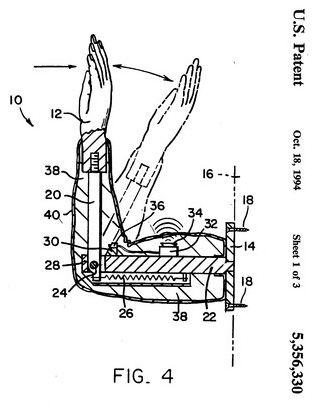What do Wilbur and Orville Wright have in common with music legend Michael Jackson?
Besides the fact that they both defied gravity (the Wright brothers with their innovative “Flying Machine” and Michael Jackson with his dance moves), they both held patents for new inventions.

Whether you’ve invented something that will transform the world, or you have an idea for a product that will make life easier, a patent can protect your idea from getting stolen or copied.
When it comes to intellectual property (creations of the mind), things aren't always simple. Do you need a patent for your new idea? Maybe, maybe not. This Byte will help you decide.
What Is A Patent?

A patent is an official right to be the only person or company allowed to make or sell a new product for a certain period of time. Owning a patent gives you the right to stop someone else from making, using, or selling your invention without your permission.
Patents can help businesses grow. Inventors also benefit from patents, as it takes them time, effort, and money to develop a new product.
There is no such thing as an "international patent" or a single patent that protects an invention in all of the world's 195 countries. It is important to understand the patent process for the country in which you wish to market and sell your product.
Quiz
A patent gives you the right to
Should I Get A Patent?
You can only apply for a patent if you have created something that is inventive, novel, and useful.
A patent can protect innovations like:
Machines
Industrial processes
Pharmaceuticals
Computer hardware
Electrical appliances
Biological products and processes
You can’t patent literary, dramatic, musical or artistic works, anything that’s an idea, a way of thinking, a scientific or mathematical discovery.
A bare concept is rarely patentable. You are more likely to be granted a patent if you develop your product before applying. When you develop, you solve many unforeseen problems.
Getting a patent does not guarantee business success. You should carefully consider how you are going to use a patent and what you will gain from it. Make sure that the potential benefit of a patent will outweigh the time, effort, and money it takes to get and maintain one.
In general, a product must meet the following requirements in order to be issued a patent:
The subject matter must be patentable.
The invention must be new.
The invention must have some usefulness.
The invention must not be obvious.
Quiz
Which of the following is NOT patentable?
Patent Pros
What are the advantages to getting and owning a patent?
A patented invention cannot be manufactured, reproduced, or sold without permission. It is off-limits to your competitors.
Some platforms like Amazon will protect intellectual property and you may be able to get competing products removed from the platform if you have a valid patent.
A patent can encourage further discovery by an inventor and increase in value over time.
Patent rights can be sold or licensed for royalties to a third party, allowing a company to expand into other regions or markets. You can also charge more for your product because you have control of the market.
A patent can be a valuable asset when your small business is looking for investors, a business partner, or when negotiating with a potential purchaser. It can even increase your company’s value and bargaining power.
You can justify investing more funds into a product’s design or production because no one can copy it without infringing on your patent.
Owning a patent comes with prestige. Securing a patent can lead to promotions, bonuses, and higher salaries.
Quiz
You must own a patent for your product to be successful.
Patent Cons
What are the disadvantages to getting and owning a patent?
The process of applying for and receiving a patent can be complex and take years.
You only have exclusive patent rights in the region where you file your patent and not in other countries.
You must reveal all the details of your invention in your patent application. Anyone can view this information, including competitors.
Getting a patent can be expensive. Most patented inventions generate less revenue than they cost to patent.
Getting a patent provides exclusive rights to a very particular design or product. A competitor may easily copy your product with enough small differences to be legal.
In some countries, you must put your invention to commercial use within a limited time frame.
Once the patent is expired (14-20 years), anyone can use your invention.
Quiz
A patent doesn't keep your invention a secret.
Take Action
"Innovation distinguishes between a leader and a follower.” - Steve Jobs
Whether you discover a vaccine for COVID-19 or you built an Apparatus for Simulating High-Fives , you’ll want to protect your hard work and intellectual property. If you solve a problem in a way that others in the market are likely to copy, a patent can add significant value to your innovation.
That deserves a high five!

Your feedback matters to us.
This Byte helped me better understand the topic.
